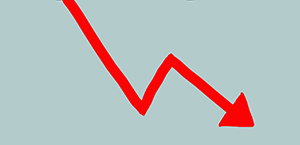
Many businesses have struggled in recent months, with their usual customers forced into lockdown and unable to buy. But a handful of companies have managed to benefit from the situation and reinforce their competitive position over their rivals.
Warren Buffett famouly popularised the concept of an "economic moat"; it refers to the ability of a company to maintain competitive advantages over its rivals in order to protect its profits and market share over the long-term. It's a crucial measure used by Morningstar analysts to rate stocks.
But it takes a lot for a company to earn the badge of Economic Moat and, by the time it does, it will likely be on the radar of many other investors. Is it better, then, to back a business before it earns this status?
Here we highlight a quintet of stocks that don’t yet have an Economic Moat, but are on the right path to getting one.
The Morningstar Moat Trend measure describes how a company's competitive position is changing over time, and can be either positive, indicating its competitive position is strengthening; negative, indicating a weakening; or stable. These stocks all a have a Positive Moat Trend - and if they continue on their upwards trajectory, these could well be the strong moat companies of tomorrow.
| Stock | Ticker | Moat Trend | Sector | Shares YTD (%) |
| ASOS | ASC | Positive | Consumer Cyclical | -36.20 |
| Ocado Group | OCDO | Positive | Consumer Defensive | 25.61 |
| China Longyuan Power Group | CLPXF | Positive | Utilities | 15.47 |
| Beyond Meat | BYND | Positive | Consumer Defensive | 54.50 |
| Slack Technologies | WORK | Positive | Technology | 24.48 |
Asos
Asos is a leading European e-commerce player in fashion and cosmetics focusing on the 20-something-year-old demographic segment. It offers more than 85,000 products on its website including those from its own label and around 950 third-party brand partners.
The company has benefited from the pandemic as an entire nation sits at home bored, surfing the internet. It's in a strong position compared to other clothes retailers, with no high street shops to close down, it's been business as usual for much of the online shopping world.
“Asos benefits from traces of network, cost, and intangible asset advantages,” says Morningstar equity analyst Jelena Sokolova. “Although we don’t believe those advantages are strong enough to warrant a moat currently, we expect the network effect and intangible asset advantages to strengthen over time as more customer traffic data is accumulated and better analytics allow improve conversion rates and customer loyalty.”
While its share price plunged in March as the coronavirus turmoil spread and sales slumped 25%. Yet that trend turned when shares climbed 70% in just two days earlier this month after the announcement of a £247 million share placing, money it will use to mitigate the impact of coronavirus on the business.
Ocado
Online grocer Ocado describes itself as "the world's largest dedicated online grocery retailer" and is another business that benefits from not having a chain of stores to run. All home deliveries are run out of its warehouses and demand for delivery slots has soared while households are in lockdown.
“Ocado Group offers unique exposure in one of retail's largest and most dynamic segments: global online food retailing,” says Morningstar equity analyst Ioannis Pontikis. “We believe the Ocado Smart Platform, or OSP, is well-positioned to become one of the most sought-after online grocery fulfilment solutions for large brick-and-mortar grocers as online penetration increases in developed markets."
Shares have rallied around 42% since mid-March after the firm saw revenue growth double amid a spate of panic buying by UK shoppers. The company was even forced to temporarily shut down its online store and stop taking new customer registrations due to unprecedented strain on the business. Online sales typically account for just 7% of UK grocery purchases but the sector reported an extra 1.2 million orders in March.
Beyond Meat
Beyond Meat is a Los Angeles-based pioneer in the plant-based meat (PBM) industry. It created the first burger to look and taste like meat, aimed at tempting omnivores to go veggie.
The company has benefited from the pandemic forcing meat processing facilities to shut down and threatening a shortage of meat in the United States that has boosted the demand for its products. It is also well-placed to benefit from the longer-term structural trend of developed populations making efforts to consume less meat as awareness grows around the strain that meat production puts on the global food chain and the environment.
Morningstar equity analyst Rebecca Scheuneman says: “Given the rapidly changing marketplace, we think it is too early to tell if Beyond’s first-mover advantage will result in a sustained market leadership position or if the onslaught of competitive products will challenge Beyond’s position. Until we have better visibility on the strength and durability of Beyond’s brand, we assign Beyond a no-moat rating.”
Slack
Communication platform Slack offers chat, file sharing, video calls, and more - services which have been hugely in demand with households across the world switching to home-working and schooling. Slack views its platform as a replacement for emails.
The company has been helped by recent events, with many businesses forced to put large-scale, remote-working arrangements in place literally overnight due to the coronavirus pandemic. This unprecedented move has accelerated Slack's paid customer adoption. Over an eight-week period in February and March, the company added more than 9,000 new paying customers to its user base - an 80% increase from the 5,000 customers it added in the previous quarter.
With the lengthy lockdown likely to cement remote work as a regular occurrence, rather than a one-off event for employees, this trend could continue. Morningstar analyst Dan Romanoff says: “We think the solution is the next step in an ongoing evolution of collaboration software. Given tired legacy products, industry buzz, and the rapid market uptake of Slack thus far, we have little doubt that revenue will continue to grow rapidly over the next several years, but we do not believe the firm has carved out a sustainable competitive advantage just yet.”
China Longyuan Power
The largest wind power producer in China and Asia, China Longyuan Power is mainly engaged in designing, developing, managing and operating wind power plants, and selling the electricity generated by its plants to its sole customers.
The growth of this company is not directly linked to the coronavirus pandemic, but it could well be the answer to the need of sustainable options in an emerging market like China. The company is one of the nation’s five largest state-owned power generators, and aims to grow its wind farm capacity by 13% to 16% this year to meet rising demand for clean energy. However, it has no plans to cut back or sell its coal-fired plants despite regulatory headwinds.
Morningstar analyst Jennifer Song points out that Longyuan has pioneered China’s wind power development, building the country’s first wind farm in Xinjiang province in the late 1980s, and its first offshore wind project in 2009.
She adds: “This first-mover advantage, coupled with a capable management team, helped the company secure better wind-farm locations and to maximize wind-farm utilisation rates. Longyuan has consistently outperformed the broader Chinese wind-farm average by 50-200 hours during the past decade."



























